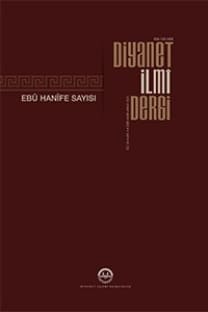A‘RÂF SÛRESİ 189 VE 190. ÂYETLERİN YORUMLANMASINDA RİVAYETLERİN ETKİSİ ÜZERİNE
Bu makalede, A‘râf sûresi 189 ve 190. âyetler araştırma konusu yapılmaktadır. Araştırma, dört aşamada yürütülmektedir. İlk olarak, tarikleri bize kadar mütevâtir bir şekilde ulaşan kıraat imamlarının konumuzla ilgili âyetlerdeki okuyuş farklılıkları ve bunların manaya herhangi bir etkisinin olup olmadığı tartışılmaktadır. Ardından A‘râf sûresi 189 ve 190. âyetlerin anlaşılmasında /yorumlanmasında Hz. Peygamber (s.a.s.)’e isnad edilen rivayetlerin etkisi incelenmektedir. Daha sonra söz konusu rivayetlerin bu âyetleri açıklama adına delil olup olamayacağı, hem rivayet hem de dirayet ilmi açısından tahlil edilmektedir. Son olarak da müfessirlerin ilgili âyetlere ve bu âyetler hakkındaki yorumlara yaklaşımları sistematik bir biçimde ele alınmakta ve özellikle 190. âyette yer alan ﺎَﻤُﻬﻴٰﺗٰﺍ ﺎَﻤﻴﻓ َءﺎَﻛَﺮُﺷ ُﻪَﻟ َﻼَﻌَﺟ terkibindeki َﻼَﻌَﺟfi ilinin fâili belirlenmeye, ﺎَﻤُﻫ zamirinin mercii tespit edilmeye ve böylece ifadede kimlerin kastedildiği açıklanmaya çalışılmaktadır. Elde edilen bulgular sonuç kısmında verilmektedir
OF NARRATIONS IN THE INTERPRETATION OF THE VERSES OF 189-190 A‘RÂF CHAPTER
In this article, the verses of A‘râf 189-190 will be examined. The examination will be conducted in four phases. Firstly, the differences of recitation that reach us by mutawatir narration among Recitation Imams will be discussed in these verses. Then, it will be discussed whether these different recitations affect the meaning or not. After that, the effect of narrations that are attributed to the Prophet Muhammad (pbuh) will be elaborated in terms of the understanding and interpretation of these verses. Later, these narrations will be analyzed by mental and narrative methods based on whether these narrations will be proof on the explanations of these verses. Lastly, approaches of commentators on the Qur’an to these verses will be handled systematically. And it will be determined what the subject of this structure is: ﺎَﻤُﻬﻴٰﺗٰﺍ ﺎَﻤﻴﻓ َءﺎَﻛَﺮُﺷ ُﻪَﻟ َﻼَﻌَﺟ and who are those people in ﺎَﻤُﻫ in the verse. The data obtained will be given in the conclusion
